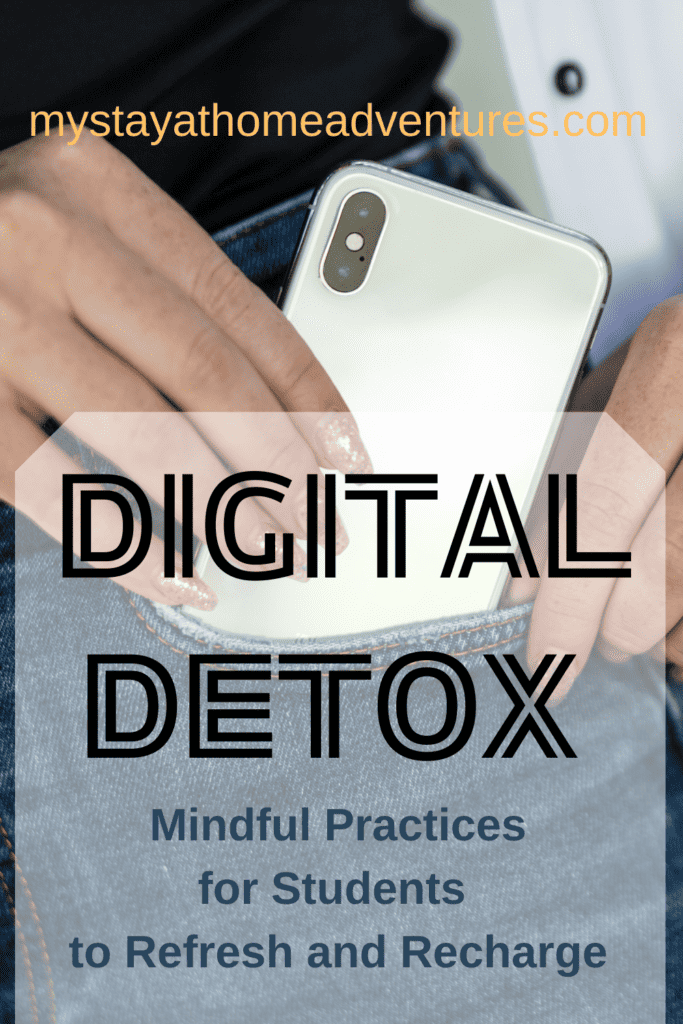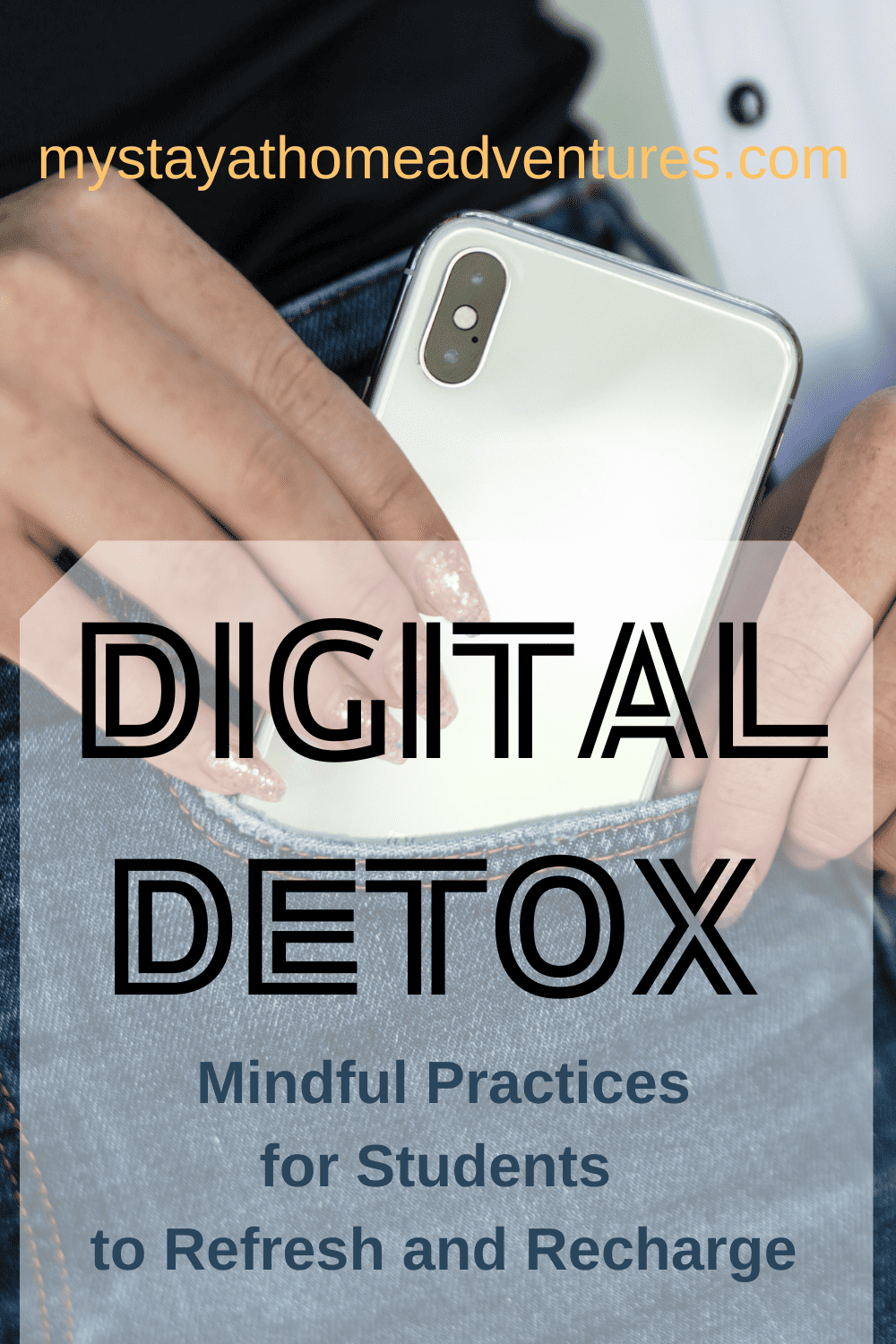Digital Detox: Mindful Practices for Students to Refresh and Recharge
This post may contain affiliate links which might earn us money. Please read my Disclosure and Privacy policies hereDigital devices have become an indispensable part of daily life, from alarm clocks and bedtime scrolling to shopping lists and to-dos. Our screens dictate our schedules, routines, and often our moods.
For students especially, the online realm can be both useful and harmful; on one side, it can provide access to educational resources, while on the other, it can become an endless source of distraction, stress, and mental fatigue.
Navigating this digital landscape requires conscious efforts to maintain a healthy balance. With their increasing reliance on online tools, such as “Write my papers” services, and the pressures of competitive academic environments, students may often become overwhelmed. Digital detox offers ways for individuals to step back, refresh, and recharge both mind and spirit.
If screen fatigue has you down, now might be the time to explore mindful practices designed for students like yourself. Let’s learn more.

Chiropractic Treatment for Stress Relief
In addition to traditional mindful practices, chiropractic treatment can be an excellent option for students looking to refresh and recharge during a digital detox. Prolonged sitting and poor posture, often a result of excessive screen time, can lead to muscle tension, headaches, and back pain.
A visit to a chiropractor can help alleviate these physical stresses by realigning the spine, improving posture, and relieving tension in the muscles. Incorporating chiropractic care into a wellness routine allows students to not only disconnect from their devices but also prioritize their physical health, ensuring they feel rejuvenated both mentally and physically.
Accept Analog Technologies: Take Advantage of Pen and Paper
Pen and paper may seem outmoded in today's digital world, yet they can provide invaluable therapeutic support on your digital detox journey.
Writing by hand – whether journaling your thoughts, sketching sketches, or drafting essays –offers numerous advantages. It helps enhance cognitive processes, boost memory retention, and provide tactile relief from touchscreens.
So the next time you're tempted to type out lecture notes or create digital to-do lists instead of writing by hand, consider taking an old-school approach and let your pen dance across the paper as you enjoy its slower pace.
Handwritten notes tend to be shorter and clearer, helping with retention and understanding. Plus, without distractions such as online tabs and notifications, study sessions become more productive.
Nature Nourishes: Outdoor Breaks
Nature holds its own therapeutic magic. In an age where digital technologies and concrete blight are often overbearing, taking a walk can offer instantaneous relief to screen-strained eyes and information-overloaded minds.
Start taking short study breaks regularly, whether that means in your backyard, local park, or even on quiet streets nearby. Spending just 10 minutes outside can do wonders. It can help you refresh and renew as you breathe deeply while listening out for bird songs, rustling leaves, and distant noises of everyday life.
Regular outdoor excursions such as weekend hikes, morning jogs, or evening strolls can play an essential part in breaking up digital isolation. Nature provides stimulation that revitalizes both brain function and mental well-being – offering refreshing relief and reinvigoration of mental wellness.
Bookish Bliss: Rediscovering the Joys of Physical Books
Electronic books and journals can be great resources, especially when needed quickly, but nothing beats the sensory experience of reading a physical book.
One of the greatest pleasures of reading from physical pages is experiencing their texture and inhaling that distinctive bookish smell. Physical books also help reduce eye strain while providing a welcome relief from digital screens.
Create a reading nook in your room or find an inviting corner of a library. Engage with books such as novels, magazines, and academic textbooks while becoming immersed in this tangible experience of ink on paper.

Mindful Movement: Yoga and Meditation
Mindful practices like yoga and meditation can be transformative in helping you embark on your digital detox journey. They focus the mind, increase concentration levels, and reduce the stresses brought on by constant connectivity.
Begin with brief meditation sessions. Even five minutes of focused breathing can reset your brain, getting you ready for productive work. While guided apps or videos might be beneficial, try opting for audio guides instead or learning some techniques to practice independently. Yoga marries physical movement with mindfulness to provide multiple health benefits. Regular practice can improve flexibility and posture, especially after hours spent hunched over screens.
Tech-Free Weekends: A Radical Reset
Staying away from screens for an entire weekend might seem daunting, but it can be an effective practice that helps reset and rebalance your mental space. Set aside two days a week for a complete digital detox. Your mind needs time to refresh itself from all that content online. Take this as an opportunity to stop spending so much time on social media or binge-watching shows and reconnect with hobbies or activities you have neglected for too long.
Imagine this: Waking up without feeling obliged to check notifications immediately upon awakening, diving headfirst into art, music, cooking, or just lazing around without the pressure of online updates weighing heavily on you all day long. By the end of your weekend experience, you will notice incredible mental clarity and mood shift!
Tech-free weekends provide you with an opportunity to reconnect with family and friends more deeply – without phones. Board games, heartfelt conversation, outdoor activities, or simply enjoying meals without interruption all contribute to creating simpler yet more genuine interactions.
Physical Activity: Screen-Free Boost
Physical activity – whether gym workouts, team sports, or solo exercises – can not only benefit your body but is an excellent way to break free from digital addictions and gain perspective. Recall the thrill of playing sports, sweating it out while feeling each muscle, every heartbeat, and adrenaline surge? Compare that experience with sitting behind a screen – the contrast is striking.
Physical activity sends oxygen-rich blood to your brain, increasing alertness and improving cognitive capabilities. If you find yourself bogged down with a challenging assignment or project, why not put on some sneakers and head outside for a walk or workout instead? Physical movement could just be what's necessary.

Implementing these practices into your daily life doesn't mean cutting all ties with digital life; that would be impractical in today's age. Instead, it means carving out space for you within all that buzz – creating moments in time when you can focus solely on yourself without notifications pinging and screens flashing by.
As students face academic pressures, achieving balance becomes essential. Digital detox practices help achieve it and foster a healthier, more mindful approach to learning and living. Try one out today, and watch how quickly you feel refreshed, focused, and more connected to the world around you!






